Food and cooking are essential to everyday life, which is why Game Changer Catapult has selected this area as one of its priorities. We invited Takako Kotake to come and talk to us about the present and future of food, and its fusion with technology.Now the officer responsible for branding at the Cookpad Inc., Kotake was previously involved in online advertising at an advertising agency, and has had ties with Panasonic since that time. Kaoru Manabe, who is in charge of business development at Game Changer Catapult, had a fascinating conversation with Takako Kotake concerning "What are the key concepts for the future of food and technology?"
Issues relating to food and cooking offer future business opportunities
Kotake: I think there are some issues relating to food and cooking. One of them is skill. Most people realize that cooking is not something you can become good at in a short period of time. However, with careful practice, anyone can become a good cook. This includes skills such as julienning vegetables, or adjusting the heat under a pan. Today we have microwave and other specialized ovens that allow people to prepare delicious meals without much practice, thereby reducing the need for the processes of failure and repetitive practice. Therefore, we must think about how technology can provide joy and a sense of achievement in cooking. For Cookpad as well, if users become reliant on recipes, dishes will be made without any instructive failures, so I think that the current recipe form will ultimately also have to be advanced. Your company is probably not looking for people who are unable to cook without kitchen appliances.
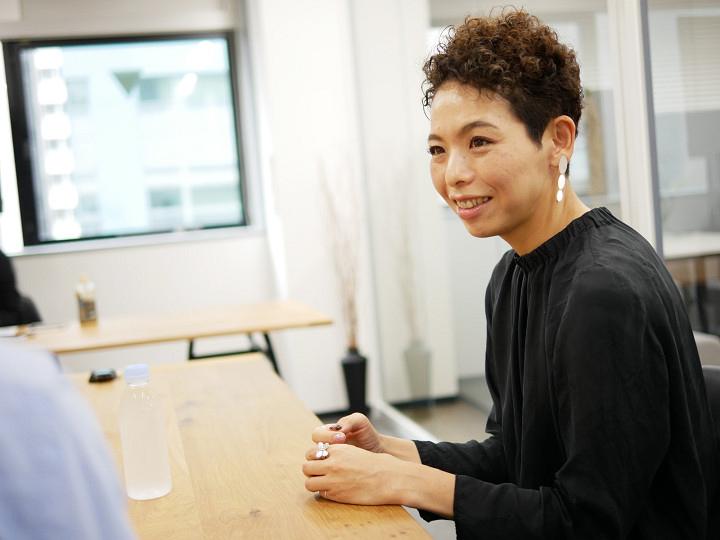 Ms. Takako Kotake, Director in charge of Editing & Corporate Branding, Cookpad Inc.
Ms. Takako Kotake, Director in charge of Editing & Corporate Branding, Cookpad Inc.
Manabe: Of course, we do not want people to be dependent on kitchen appliances. Instead, we would like cooking to become an opportunity for people to enjoy a process of achievement, to enjoy their food more, and to experience the joy of creating something.
Kotake: Yes, I didn't mean to say that people are dependent on appliances. However, I think it is important to use recipes and appliances just as a stepping stone in the effort to improve your cooking skills. Otherwise, cooking will just become a mechanical process, which would be regrettable.
Changing the topic a little bit, I think more consideration should be given to cooking and food. It would be great if more people used Cookpad and kitchen appliances to make personal connections through food.This is because eating food that someone made with care makes us happy. This happiness comes from having a life where we can eat great tasting dishes made using seasonal ingredients, even the less expensive ones. Recently, fewer people have been spending money on their everyday meals. I think it is good to save money on groceries so you can travel several times a year, but I also feel that living comfortably even on weekdays can lead to true happiness.
Manabe: Thinking how we can enhance our customers' everyday lives is the foundation of our company and we place great importance on it. Our concept is to become an integral part of lifestyles. In fact, the vision statement of Game Changer Catapult states our desire to fully understand customer wants and the everyday problems they face. Food makes up a significant portion of everyday life. Because everyone has a relationship with food, it is something that can easily elicit positive customer sentiment, and food is one of the core areas of our business development. As a result of becoming very familiar with the food issues faced by individual consumers, including the nature of families today, I believe there are many food-related needs along with numerous business opportunities.
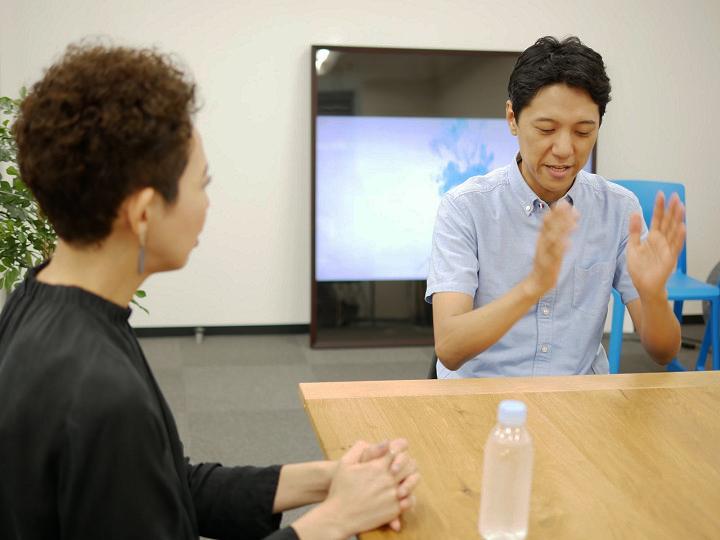
Kotake: I am so happy to hear that. I'm also glad that many men participated in the Smart Kitchen Summit Japan 2018. At past events involving food and cooking, the only participants were industry people and women who like to cook. For that reason, there was not much business talk either. This time I was impressed by the fact that many people seem to be starting to think about future and business opportunities for cooking. There are new home appliances that allow men to enjoy preparing dishes, and it seems men are discovering the interesting aspects of cooking now that their viewpoints have changed. Since men have turned their attention to cooking, I am surprised to hear them talking about kitchen gadgets such as low-temperature cookers, coffee roasters, and rotisseries. The cooking mindset has finally transcended gender roles, and it is very interesting to see the various issues that have come to light.
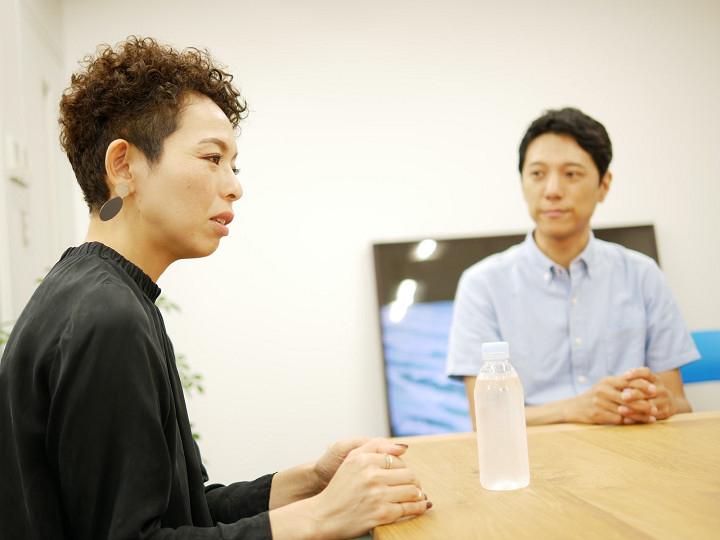
DeliSofter provides a clear model of technology that solves a food issue
Kotake: When I learned about DeliSofter *1 at the Smart Kitchen Summit Japan last year, I thought that it was a product that seemed to be very Panasonic. There are two reasons for this. The first is that it is a product created based on an awareness of issues faced by female consumers. The second is that while it uses conventional pressure cooker technology, it also incorporates new thinking in the form of electronic technology. I think this is something that only a large company could create.
It is also interesting that your DeliSofter allows both men and women, as well as various age groups such the elderly and children to prepare special meals for those with difficulty chewing or swallowing. Since nursing care food is difficult to feature on Cookpad, I am glad that an appliance like DeliSofter can expand this market. I think DeliSofter is creating a new market, but what about other products?
Manabe: It's wonderful that DeliSofter has made such a strong impression on you. As with our other ideas, we are working on the premise that at a time when the world is changing drastically, such as during the current digital revolution, it is impossible for one company alone to create all the necessary new value propositions and solutions for the social issues we face. So we go beyond the framework of our company and collaborate with outside people to utilize the value they can offer.
Kotake: With Ferment 2.0 *2, you cooperated with external partners, and you faced plenty of challenges. This included how to work with the number-one miso maker and how to utilize existing assets for a new business.
* 1. DeliSofter is a device that can soften prepared foods without changing their appearance or taste, so that they can be enjoyed even by those who have difficulty chewing or swallowing. The idea was submitted through a business contest sponsored by Game Changer Catapult, and the device was exhibited at South by Southwest (SXSW) in March 2017.
* 2. Ferment 2.0 is a kit for making miso that is tailored to each customer's preferences, produced in collaboration with Marukome. A sensor notifies the user when optimal fermentation has been reached. It was exhibited at SXSW in March 2018.
Key concepts that Cookpad is focusing on and the relationship between food and technology
Manabe: Is there a key concept that Cookpad is following now?
Kotake: It's difficult to narrow them down to just one key concept, but "Smart Kitchens" are something we are keeping an eye on. I am interested in how people live with machines. Another key concept is "local." Cookpad's goal is to become the number-one recipe website in 100 countries by 2020. While I don't see any benefits in people around the world using the same recipes, we would like to create small communities centered on particular locations or neighborhoods, as well as on delicious cooking methods using ingredients that are locally available. What we are focusing on is how to create communities that fit each location and how to foster their local cultures. In the case of Japan, the current cooking culture became established after World War II. In Kenya however, they are just now in the process of establishing a new cooking and eating culture. There seem to be many people who simply eat what they have available, and do not know much about the delicious ways those foods can be prepared and eaten. In the community space called Cookpad House, we teach cooking to people in other countries, and they prepare dishes in their own homes. We are providing support for them as they create their own food cultures.
As I already mentioned, it's impossible to become good at cooking after just one attempt, and improvement only comes from a process involving repeated failures. I think the number of failures determines how good a cook you will become. The same thing applies when creating businesses and communities. We can only imagine how successful they will become based on the degree of trial and error involved.
We promote Cookpad as a place where you can cook without making any mistakes. However, as an important key to our continued success, I think we will have to also show users how failures are an important part of learning to cook well. The current issue we face is how to better help users improve their skills and achieve a sense of accomplishment through cooking.
The common point between business and cooking is that you need to cooperate in various areas. There is no one correct answer to any problem, which is what makes it interesting. Isn't it the same in manufacturing?
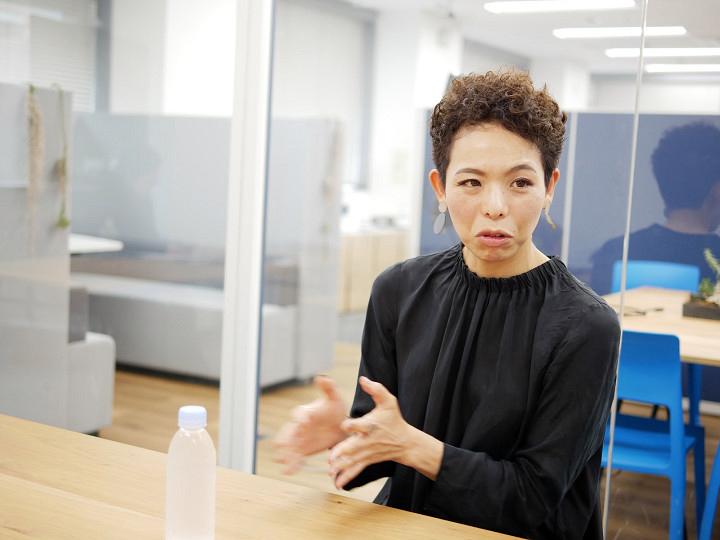
Manabe: Yes. Using the latest technical term, we call it "agile development." Since failure is an unavoidable part of the development process, we are aware of the need to move forward through repeated trial and error. We strive to develop products by quickly incorporating feedback from customers who are facing real difficulties, and work to hear them say, "That's fantastic," or "This makes me happy." While analyzing the causes of failures, we also have to take the time to carefully clarify the issues before going on to the next action. We must determine the true issues from the failures and have the will to realize our goal. We are aware of the need to rapidly apply cycles involving rapid hypothesis creation and verification. It's like a game for creating new value.
Kotake: It's the same at Cookpad. Rather than trying to create something for the users, it is more interesting for us to first decide what we really want to create. It is not very exciting just trying to imagine all the things homemakers have trouble with. To be honest, while we often take an objective viewpoint, it is easier to become more serious about an idea if it helps solve an issue that we ourselves are facing. Therefore, I can understand the need to add an element of fun into the process.
Do you do have any measures or methods to incorporate a sense of fun into your work?
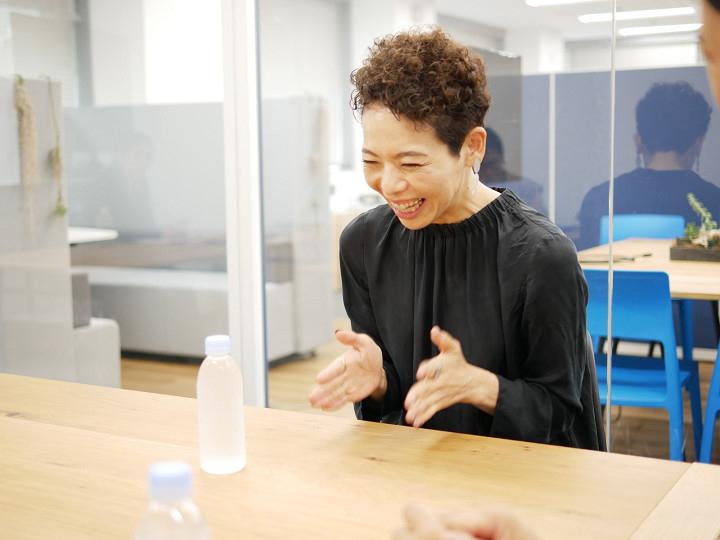
Manabe: One thing I do is try to learn new things, by going to workshops attended by employees from different industries, and interacting with people at events that seem to have little connection to my work. This is how I find inspiration and gain new awareness, so it is something I actively carry out. Whether I am doing it effectively is determined through a process of trial and error.
Kotake: A lot of people I meet tell me they are avid Cookpad users, and it is easy for me to believe that Cookpad is very popular, it is an essential part of people's lives, and that everyone is cooking. On the other hand, when I step back and look at the statistics, it is very clear that number of people who regularly eat at home is declining, while the number of people who usually eat out is increasing. I try to maintain an objective viewpoint of Cookpad's position in the world, and retain an awareness about cooking. At the same time, I also want our staff to have diverse perspectives.
Do you mind if I ask a question? What kind of technology might we see 10 years from now?
Manabe: Because the environment and technology both change so rapidly, it is really hard to say. Even if we make predictions about the situation 10 years from now, for example, we still need to constantly learn so as not to establish fixed concepts. It is also important to forget past notions, reset our thinking, and update our outlook. "Unlearning" old concepts is part of our team's approach.
One of our product concepts that has been drawing a lot of attention is CaloRieco. It won the US Media Panel Innovation Award at CEATEC Japan 2017. There has been a movement toward utilizing data on food calories and nutrients, and I think this has put the spotlight on technologies related to this. It is especially true when considering health and eating, not only in Japan but also in North America and Europe, and when addressing social issues such as obesity and diabetes.
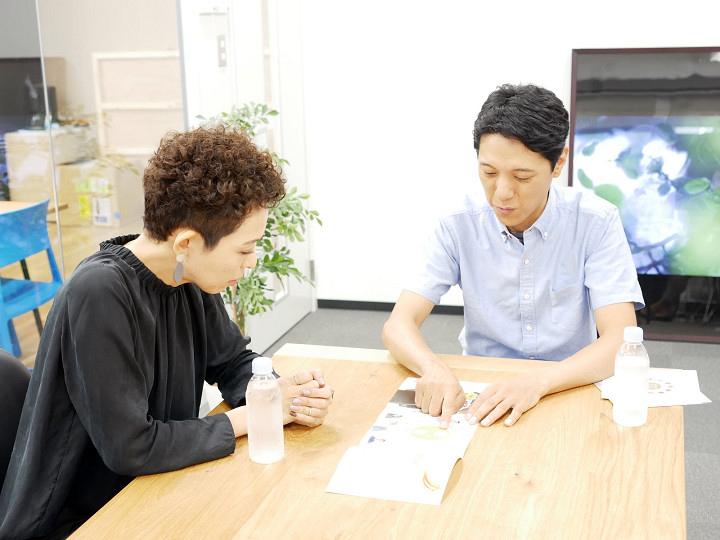
Kotake: I hear there are some nutrients in food that have yet to be identified. I hope CaloRieco can also learn to accommodate that kind of ambiguity.
Manabe: Yes, well as the technology learns more and more, it can also make personalized recommendations. We also have totteMEAL, which is a business concept that promotes this learning as one of its aims. In many urban office districts in Japan, workers often have a hard time finding places to eat during their lunch hours, creating a phenomenon called "lunch refugees." By combining a refrigerator and a smart lock, totteMEAL is a solution that allows office workers to purchase delivered lunch boxes whenever it is convenient for them, while also ensuring good nutrition. We are also working on a recommendation function that suggests menu items according to the customer's basic attributes, daily eating habits, and actual consumption history.
We call our technology for gathering food and lifestyle data "life logs." By using a natural format that fits in with customers' lifestyles, these life logs can provide a direct connection to customers. They allow us to recommend menu items, or suggest recipes that include nutrients that could help improve the customer's current wellbeing. Many people would like to get recommendations on meals and ingredients. Becoming a natural part of customers' lives through the power of technology means continually connecting with them on a daily basis. I think this will enable us to deepen our understanding of customers. We believe the technology will be valuable to those who use it, and we like the idea of providing experiences that make people happy.
The future of food and cooking and measures to be taken by both companies
Manabe: Given the richness of Japanese food culture, what is your outlook for future food developments? You mentioned earlier that you want to help preserve local food cultures. Is it better for them to change or stay the same?
Kotake: In my opinion, it is better not to change traditional ingredients. I think the diversity of ingredients varies depending on the local climate, soil, and water, so it's not desirable to use the same ingredients everywhere. We should eat delicious local ingredients close to where they are produced. In fact, eating locally produced food is what creates a community.
I really wish I could live by bartering instead of using money. The moment you realize that the extra cucumbers you grew can be traded for someone else's eggplants, your approach to money changes. I think food is a natural non-monetary currency. Please excuse my radical ideas.
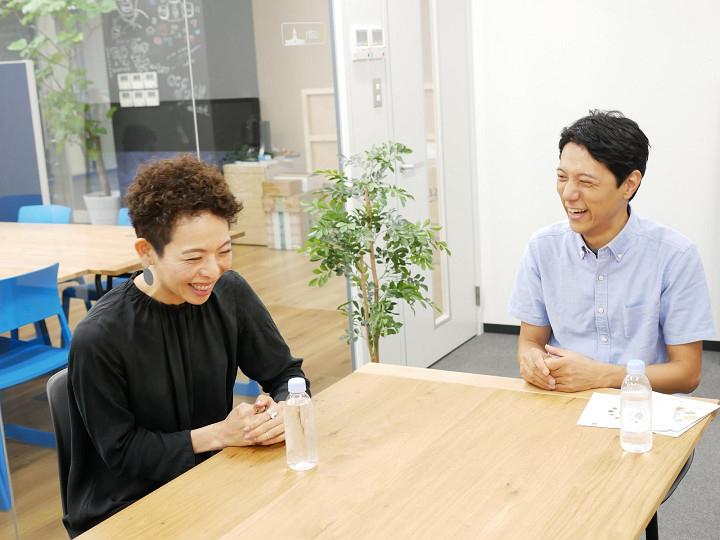
Manabe: What you say is very interesting. We are also paying attention to community creation. Through a process of trial and error, the Ferment 2.0 team tries to build a community called Miso Ball Club. For example, exchanging homemade miso for that made by other enthusiasts results in communication and the creation of real-world and virtual communities. Traditional food culture is steadily disappearing, including unique fermentation microbes that are dependent on certain local climate, ingredient, and water conditions. By making these cultural aspects visible in a digital format, we are trying to create communities where people encourage each other's individual miso making efforts.
Perhaps this will also help promote an increase in food product exchanges.
Kotake: If you asked me what is more rewarding, obtaining my food by swapping miso, vegetables, fish, and other staples, or buying ingredients in a luxury supermarket, I would overwhelmingly say that food swapping is more rewarding, as you really appreciate what you have.
The other day, I talked to someone who just came back from Laos. It seems that supermarket products there are very expensive, as they are imported from Thailand. However, even though most Laotians have only meager incomes, it does not mean that they don't live well. Instead of frequenting a supermarket, they do their shopping in traditional markets, and barter for what they need when necessary. It seems they can get by without much money, because they produce their own food.
I think job sharing has slowly been gaining popularity, and it would be nice if we could do something similar with food as well. Bartering food in Tokyo might be difficult, but it is quite possible in rural areas. It would be interesting if your company could create a platform for food sharing that also included recipes. It would be something quite achievable in the near future, don't you think?
Manabe: I think I would like to do that. It would probably be something experimental at first, like the creation of a community ecosystem where there are no monetary exchanges.
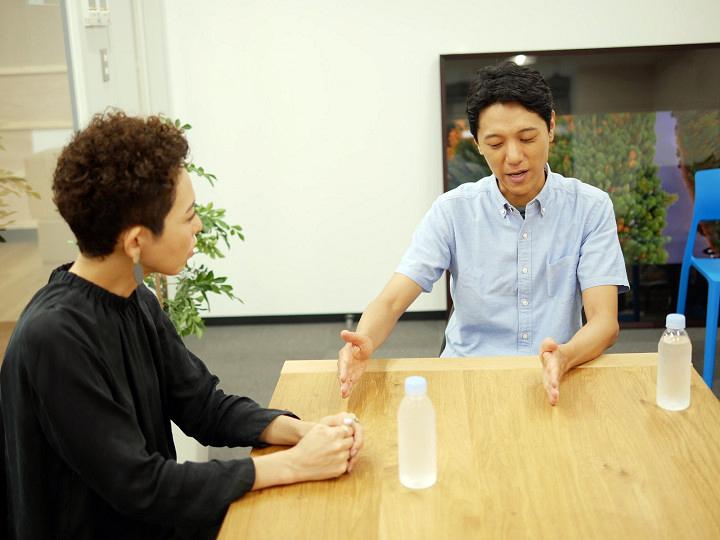
Kotake: We can make people happier without raising GDP. I think it can be done with food.
Manabe: Yes, they are actually doing it in developing countries.
Kotake: You're right. I think we can do it where we have wonderful ingredients.
People often ask me what I think the food scene will look like 10 years from now, but that all depends on how much work we do in the years to come. Cookpad is used by about 100 million people worldwide. In other words, it depends on what kind of places we create. In a way, we are working against the prevailing trend, but I am thrilled to be taking on this challenge.
Manabe: That seems to be true, if you look only at the data.
Kotake: Right. So, I think we are in trouble unless some action is taken. On the other hand, looking at it positively, along with the work style innovation that is happening in many countries, we can expect that more people will have time for cooking. However, as time passes, there may be greater numbers of people spending their free time in the virtual world, such as playing online games. It seems we are in a transitional period, and I feel a sense of urgency.
Manabe: I'd like to offer my support as a fellow food enthusiast in order to create opportunities for more people to achieve a sense of achievement through cooking. I hope we can advance various initiatives.
Kotake: For me, it is quite gratifying to hear you say that, because we have been working so hard to catch up with Panasonic. The encouragement Panasonic has given to Cookpad from the start has been overwhelming.
Manabe: Since you have taught me so much about customers, I want to try my best to return the favor.
Kotake: I will continue to do my best also!
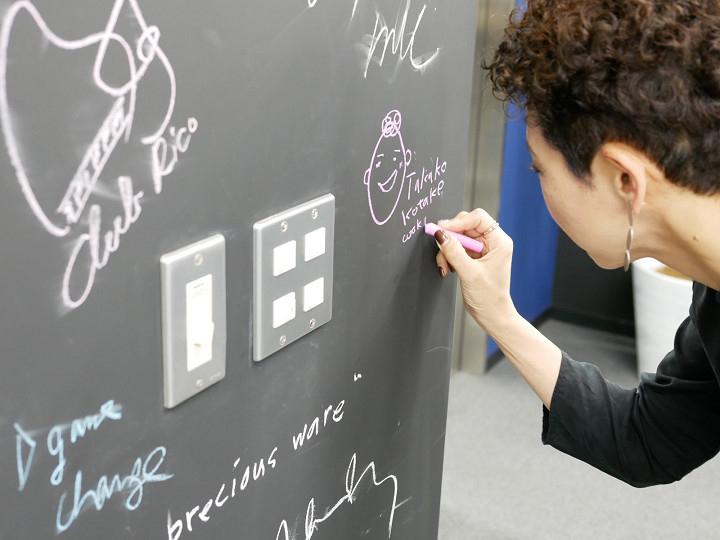
Special thanks to Cookpad Inc. https://cookpad.com/
Profile--------------
Takako Kotake
Director in charge of Editing & Corporate Branding, Cookpad Inc.
After serving as a web director at Hakuhodo i-studio Inc., Kotake joined Coin Ltd. (now Cookpad Inc.) in 2004. She became the mainstay of the company's marketing support business and created an entirely new recipe contest that was a win-win for both advertisers and website users. In 2006, she was appointed Chief Editor, and became an executive officer in 2008. In 2010, she was recognized as a Nikkei Woman of the Year for 2011. In 2012, she left Cookpad to work independently. In April 2016, she returned as Director in charge of Editing & Corporate Branding at Cookpad.



